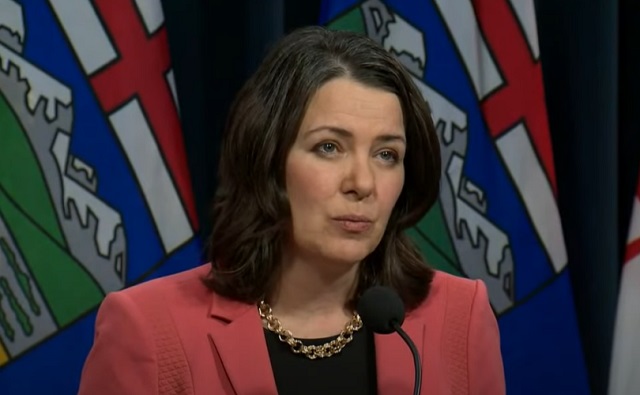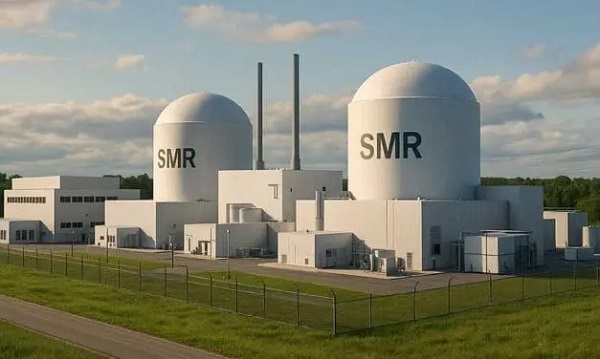Alberta
Alberta calls for tough-on-crime approach from feds

Premier Danielle Smith and Minister of Justice and Attorney General Mickey Amery are demanding Ottawa get serious about drug crimes in Canada.
Premier Smith and Minister Amery have demanded Bill C-5 be repealed in its entirety and the federal government reintroduce mandatory minimum jail sentences for Controlled Drugs and Substances Act (CDSA) offences. Alberta also calls on the federal government to rescind guidelines prepared by the Public Prosecution Service of Canada that direct federal prosecutors to divert drug cases away from the criminal justice system to pursue alternative measures and leave criminal prosecutions for only the most serious cases.
If the federal government does not immediately undertake these actions, Premier Smith and Minister Amery have asked for federal funding to enable the province to permanently take over all CDSA prosecutions.
“For years, Alberta’s government has urged the federal government to reverse their soft-on-crime policies which have allowed illegal drugs to flood our streets and for repeat offenders to prey on our most vulnerable. The federal government must act now and put an end to their insane policies. And if they refuse to, then they must allow the Province of Alberta to take over all prosecutions under the Controlled Drugs and Substances Act. Let there be no mistake, Alberta’s government will find these dangerous criminals, prosecute them and keep them in jail where they belong.”
When the federal government passed Bill C-5, they further weakened the Canadian justice system and increased potential harm for Canadians by:
- Eliminating all mandatory minimum sentences of imprisonment for CDSA offences;
- Eliminating many mandatory minimum sentences for serious weapons and substance-related offences under the Criminal Code of Canada;
- Removing limitations placed on the use of conditional sentences;
- Forcing both police and prosecutors to first consider referring people to treatment and support programs rather than charging or prosecuting drug possession offences; and
- Continuing to emphasize an approach to drug possession that fails to address the death, disorder and victimization caused by the drug-crime nexus, by focusing narrowly on diversionary measures.
Under Bill C-5, law enforcement has lost the ability to effectively deal with serious crimes, lessening meaningful and impactful enforcement and prosecution. Drug dealers often face very limited consequences, with their charges dismissed or conditional sentences imposed. This allows these criminals to continue profiting from illegal activity while preying on vulnerable populations and worsening the drug crisis in Canada.
“Alberta is deeply concerned about the federal government’s failure to address the growing drug crisis in Canada. Federal prosecution directives and Bill C-5 have significantly weakened our justice system, allowing criminals and drug dealers to exploit loopholes while putting public safety and Canadian lives at risk. We demand immediate action to reverse these disastrous policies, prioritize the safety and well-being of Canadians, and restore Canada’s reputation on an international level.”
Issues with drugs and drug-related crimes continue to worsen in Canada, with drug trafficking often linked to other serious offences such as human trafficking, gun trafficking and money laundering. These concerns have also been underscored by the Trump Administration, which has called for Canada to secure the border to illegal migrant and drug activity. Alberta responded to that request by introducing a $29-million border plan to combat drug smuggling, gun trafficking and other illegal activities. The plan includes a new Sheriffs unit, a 51-officer Interdiction Patrol Team, four K-9 patrol teams, 10 weather surveillance drones and four narcotics analyzers to test for illicit drugs.
Alberta
Danielle Smith slams Skate Canada for stopping events in Alberta over ban on men in women’s sports

From LifeSiteNews
The Alberta premier has denounced Skate Canada as ‘disgraceful’ for refusing to host events in the province because of a ban on ‘transgender’ men in women’s sports.
Alberta Premier Danielle Smith has demanded an apology after Skate Canada refused to continue holding events in Alberta.
In a December 16 post on X, Smith denounced Skate Canada’s recent decision to stop holding competitions in Alberta due to a provincial law keeping gender-confused men from competing in women’s sports.
“Women and girls have the right to play competitive sports in a safe and fair environment against other biological females,” Smith declared. “This view is held by a vast majority of Albertans and Canadians. It is also common sense and common decency.”
Women and girls have the right to play competitive sports in a safe and fair environment against other biological females.
This view is held by a vast majority of Albertans and Canadians. It is also common sense and common decency.
Skate Canada‘s refusal to hold events in… pic.twitter.com/n4vbkTx6B0
— Danielle Smith (@ABDanielleSmith) December 16, 2025
“Skate Canada‘s refusal to hold events in Alberta because we choose to protect women and girls in sport is disgraceful,” she declared.
“We expect they will apologize and adjust their policies once they realize they are not only compromising the fairness and safety of their athletes, but are also offside with the international community, including the International Olympic Committee, which is moving in the same direction as Alberta,” Smith continued.
Earlier this week, Skate Canada announced their decision in a statement to CBC News, saying, “Following a careful assessment of Alberta’s Fairness and Safety in Sport Act, Skate Canada has determined that we are unable to host events in the province while maintaining our national standards for safe and inclusive sport.”
Under Alberta’s Fairness and Safety in Sport Act, passed last December, biological men who claim to be women are prevented from competing in women’s sports.
Notably, Skate Canada’s statement failed to address safety and fairness concerns for women who are forced to compete against stronger, and sometimes violent, male competitors who claim to be women.
Under their 2023 policy, Skate Canada states “skaters in domestic events sanctioned by Skate Canada who identify as trans are able to participate in the gender category in which they identify.”
While Skate Canada maintains that gender-confused men should compete against women, the International Olympic Committee is reportedly moving to ban gender-confused men from women’s Olympic sports.
The move comes after studies have repeatedly revealed what almost everyone already knew was true, namely that males have a considerable innate advantage over women in athletics.
Indeed, a recent study published in Sports Medicine found that a year of “transgender” hormone drugs results in “very modest changes” in the inherent strength advantages of men.
Additionally, male athletes competing in women’s sports are known to be violent, especially toward female athletes who oppose their dominance in women’s sports.
Last August, Albertan male powerlifter “Anne” Andres was suspended for six months after a slew of death threats and harassments against his female competitors.
In February, Andres ranted about why men should be able to compete in women’s competitions, calling for “the Ontario lifter” who opposes this, apparently referring to powerlifter April Hutchinson, to “die painfully.”
Interestingly, while Andres was suspended for six months for issuing death threats, Hutchinson was suspended for two years after publicly condemning him for stealing victories from women and then mocking his female competitors on social media. Her suspension was later reduced to a year.
Alberta
Alberta’s huge oil sands reserves dwarf U.S. shale

From the Canadian Energy Centre
By Will Gibson
Oil sands could maintain current production rates for more than 140 years
Investor interest in Canadian oil producers, primarily in the Alberta oil sands, has picked up, and not only because of expanded export capacity from the Trans Mountain pipeline.
Enverus Intelligence Research says the real draw — and a major factor behind oil sands equities outperforming U.S. peers by about 40 per cent since January 2024 — is the resource Trans Mountain helps unlock.
Alberta’s oil sands contain 167 billion barrels of reserves, nearly four times the volume in the United States.
Today’s oil sands operators hold more than twice the available high-quality resources compared to U.S. shale producers, Enverus reports.
“It’s a huge number — 167 billion barrels — when Alberta only produces about three million barrels a day right now,” said Mike Verney, executive vice-president at McDaniel & Associates, which earlier this year updated the province’s oil and gas reserves on behalf of the Alberta Energy Regulator.
Already fourth in the world, the assessment found Alberta’s oil reserves increased by seven billion barrels.
Verney said the rise in reserves despite record production is in part a result of improved processes and technology.
“Oil sands companies can produce for decades at the same economic threshold as they do today. That’s a great place to be,” said Michael Berger, a senior analyst with Enverus.
BMO Capital Markets estimates that Alberta’s oil sands reserves could maintain current production rates for more than 140 years.
The long-term picture looks different south of the border.
The U.S. Energy Information Administration projects that American production will peak before 2030 and enter a long period of decline.
Having a lasting stable source of supply is important as world oil demand is expected to remain strong for decades to come.
This is particularly true in Asia, the target market for oil exports off Canada’s West Coast.
The International Energy Agency (IEA) projects oil demand in the Asia-Pacific region will go from 35 million barrels per day in 2024 to 41 million barrels per day in 2050.
The growing appeal of Alberta oil in Asian markets shows up not only in expanded Trans Mountain shipments, but also in Canadian crude being “re-exported” from U.S. Gulf Coast terminals.
According to RBN Energy, Asian buyers – primarily in China – are now the main non-U.S. buyers from Trans Mountain, while India dominates purchases of re-exports from the U.S. Gulf Coast. .
BMO said the oil sands offers advantages both in steady supply and lower overall environmental impacts.
“Not only is the resulting stability ideally suited to backfill anticipated declines in world oil supply, but the long-term physical footprint may also be meaningfully lower given large-scale concentrated emissions, high water recycling rates and low well declines,” BMO analysts said.
-

 Alberta12 hours ago
Alberta12 hours agoDanielle Smith slams Skate Canada for stopping events in Alberta over ban on men in women’s sports
-

 Health1 day ago
Health1 day agoSaskatchewan woman approved for euthanasia urged to seek medical help in Canada rather than US
-

 Indigenous1 day ago
Indigenous1 day agoResidential school burials controversy continues to fuel wave of church arsons, new data suggests
-

 Health1 day ago
Health1 day agoCanadian gov’t considers sharing census data on gender-confused children
-

 International1 day ago
International1 day agoFBI didn’t think it had cause to raid Trump but DOJ did it anyway
-

 Crime14 hours ago
Crime14 hours agoThe Uncomfortable Demographics of Islamist Bloodshed—and Why “Islamophobia” Deflection Increases the Threat
-

 Energy17 hours ago
Energy17 hours agoLiberals Twisted Themselves Into Pretzels Over Their Own Pipeline MOU
-

 Alberta1 day ago
Alberta1 day agoCanada’s New Green Deal




